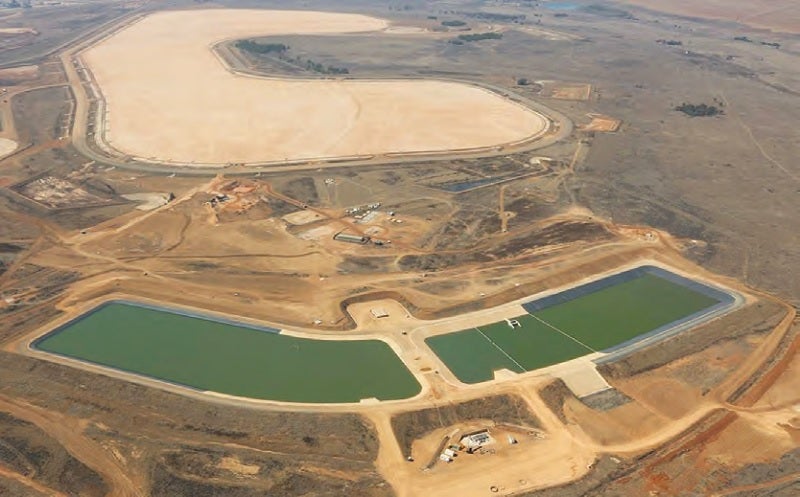
Environment consulting specialist Knight Piésold is today recognised as the ‘consultant of choice’ in the mining sector – thanks largely to the skills sets and experience it has built up over almost a century. This has positioned the firm as a leader is its fields of expertise and enabled it to stay fully in tune with the changing needs of the countries and landscapes it operates in. This is highly pertinent to the mining industry and explains the company’s ongoing success, despite the lingering economically challenging environment.
“To work with Knight Piésold is making the choice to work with a truly South African firm that is globally connected. We offer our clients the best people, the best value and the best service quality,” says MD Vishal Haripersad.
The company prides itself on being the oldest consulting firm in South Africa and also one of the oldest 100% South African owned and managed firms on the continent. As a Level 2 black economic empowered firm and service provider, the company considers itself completely transformed. This has undeniably enabled it to cement its standing relationships in the mining sector in particular, which in many instances extends well beyond 40 years, says mining technical director Andrew Copeland.
“This speaks volumes about the nature and quality of work and the emphasis and priority we place on building relationships – which enables us to assist clients, understand what they need and provide the best value for money,” Haripersad highlights.
“We are leaders in specialised areas including mine residue, heap leach facilities, environmental impact assessments and geotechnical engineering. This places us in a unique position and as such we want to continue specialising in these areas to ensure we maintain our frontleading place in the sector.”
Pioneers at heart
Knight Piésold pioneered cycloned tailings facilities, an initiative that remains a widely used methodology worldwide since the 1970s.
No other engineering consultant designs and delivers siphon decant systems for tailings storage facilities either. The system allows water to decant off the facility using gravity and therefore has minimal energy requirements and does not require the traditional outlet pipe exiting through or under the perimeter wall ‘which is frowned upon by certain clients/countries’.
Having recently installed a system for a mining project in South Africa, Knight Piésold has been awarded a contract to deliver a similar installation to a project in Botswana. “The system has proven itself and 20 years after its first installation in Phalaborwa is considered innovative. It is also gaining popularity as power costs (and interruptions) continue to challenge the mining sector,” Copeland highlights.
He adds that the company is also a leader in developing cost-effective solutions to protect groundwater. This entails looking at plastic-alternative lining systems such as single to triple linings on hazardous facilities or managing groundwater to prevent it from polluting the environment using abstraction systems to manage the groundwater.
Enhanced monitoring and analysis
“Major tailings storage facility failures in recent years have triggered a response to better understanding what happens in the event of a failure and how to prevent it. In most cases, the primary driver of these failures is linked to mismanagement of water or not adequately providing for extreme rainfall events. Carrying out detailed water balances and dam breach assessments for these facilities is becoming far more common as a result,” Copeland explains.
The science and analysis of dam breach assessments is not well advanced or developed to the point where there is a globally accepted analysis method. Current software deals well with Newtonian fluids (water) but not as yet the heavily solids laden water (non-Newtonian fluids) that flows during a TSF breach.
Knight Piésold has developed an in-house procedure based on the state-of-the-art knowledge and understanding and so considers itself a leader in this field.
“Understanding the water balance of the tailings storage facility and the greater mine is critical to making operational and business decisions affecting water management. Knight Piésold has developed countless water balance models for projects all over the world, ranging from simple spreadsheet based models to advanced probabilistic models using GoldSim or similar software,” Copeland says.
“I hope that this will lead to improved standards in managing tailings dams, which is what the international mining sector and industry bodies are showing a preference for.”
Environmental impact assessment specialists
Knight Piésold continues to shine in an environmental context and provides ‘high-quality work’ on environmental impact assessments.
This almost always includes local community interaction and communication. “Village relocation is becoming a common requirement for new or expansion projects. The management and education around expectations and compensation is an area we excel in, particularly in Africa where language barriers exist,” Copeland outlines.
The volume of aquatic bio-monitoring work has also recently increased and involves understanding the health of rivers through monitoring, sampling and testing processes after which Knight Piésold can advise on water use licence compliancy.
Multi-disciplinary and collaboration offer value-added services
“We are a multi-disciplinary organisation and offer the full breadth of consulting/civil engineering services, all with unparalleled quality,” highlights Haripersad. The company’s geotechnical division offers a broad range of infrastructure requirements necessary for various industries, including mining. Its transport division is equally able to support mines in access and haul road designs.
“They have particularly strong skills sets in dolomitic ground conditions and the associated risk of sinkholes, as well as grouting of dam foundations,” Copeland points out.
“We believe in maintaining collaborative relationships with our partner firms across the globe as it brings us together in Africa where we are geographically well positioned to service projects, and our partners are geographically well positioned to service the clients. In conjunction with our Canadian offices we are involved in delivering two large dam and hydropower projects for mining clients in the DRC. We are working with other clients on either hydro-power or renewable power on remote mining sites. This is the energy route of the future,” Haripersad concludes.

